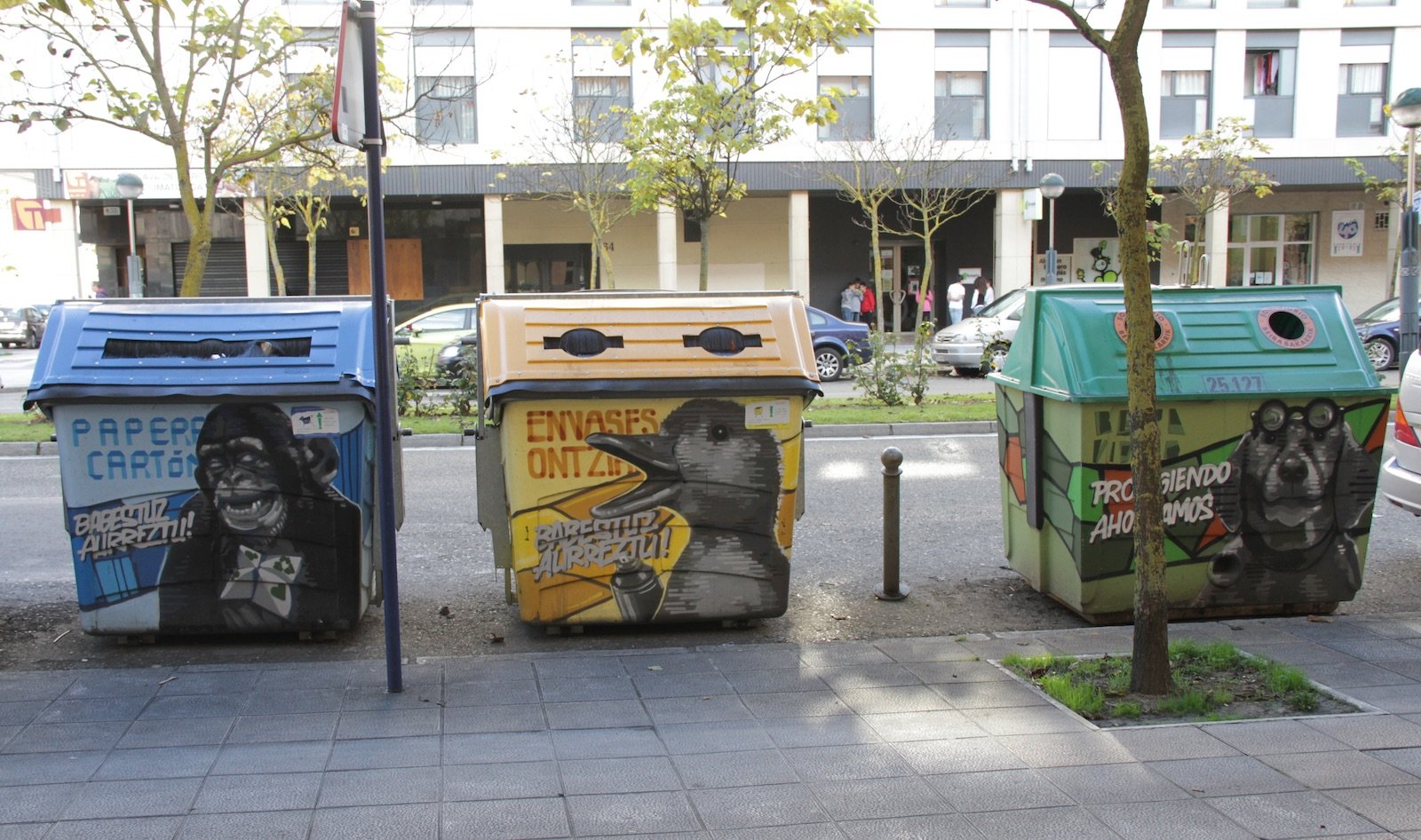By David Dodge and Max Fawcett
It wasn’t that long ago that recycling was seen as both an environmental badge of honour and an easy way to reduce your footprint. But the message of the three “R”s —reduce, reuse and recycle — is increasingly lost on people today. Disposable cups and throw-away plastics have become all too common aspects of our modern lives. Movie producers faithfully replicate this –– people in the movies carry disposable cups like people in the ‘60s were portrayed smoking cigarettes as the norm.
That’s made Christina Seidel’s job even more important — and more challenging. She’s the executive director of the Recycling Council of Alberta, which has the mandate to promote and facilitate recycling and resource conservation in the province of Alberta.
She spends a lot of her time reminding people that the three “R”s are not equally important.
“We need to always remember that there are two “Rs” that have a priority over recycling,” she says. “The most important is reduction.”
That’s where she says citizens can make the biggest difference on, and for, the environment. “If you actually want to look at environmental benefits, including saving energy and reducing greenhouse gas emissions, actually reducing our consumption is where we get by far the strongest benefits.”
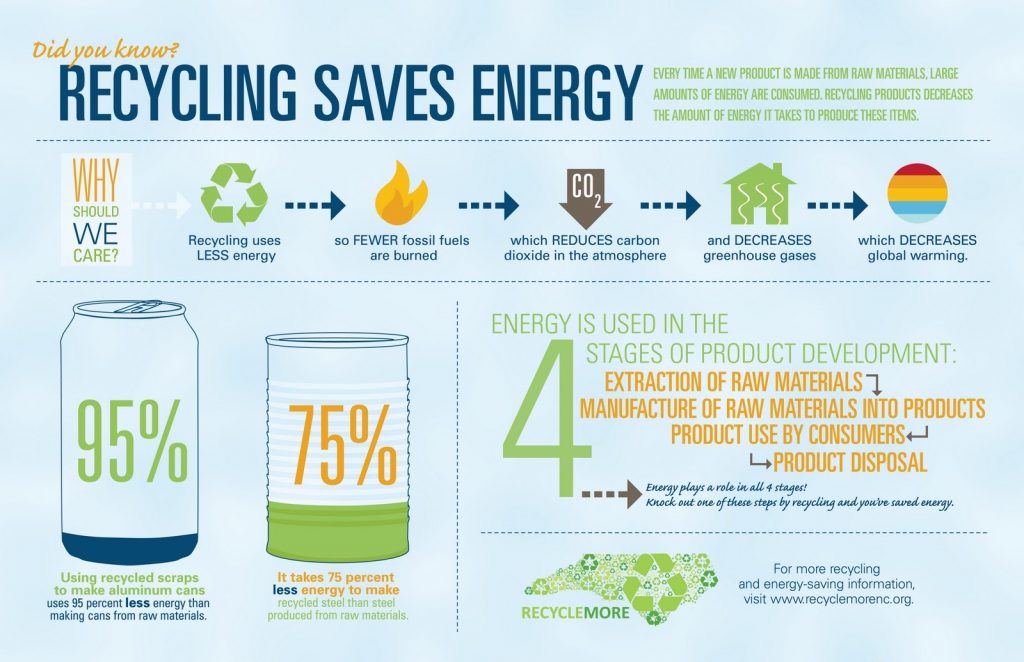
Three “R”s save energy, reduce emissions
Every time you recycle something, you’re effectively saving a substantial amount of energy. “Recycling is recognized as a very effective way to reduce greenhouse gas emissions as well as reduce energy consumption,” Seidel says.
The best example might be aluminum, which takes approximately 95 per cent less energy to make from recycled materials than it does from mined ore. But recycling other materials can create significant benefits too. “For every ton of plastic you recycle,” Seidel says, :you will avoid about three tons of greenhouse gas emissions.”
Given how easy it is to recycle, and how big the benefits can be, you’d think that the three R’s would be one of the cornerstones of our efforts to fight climate change. That’s not the case, unfortunately.
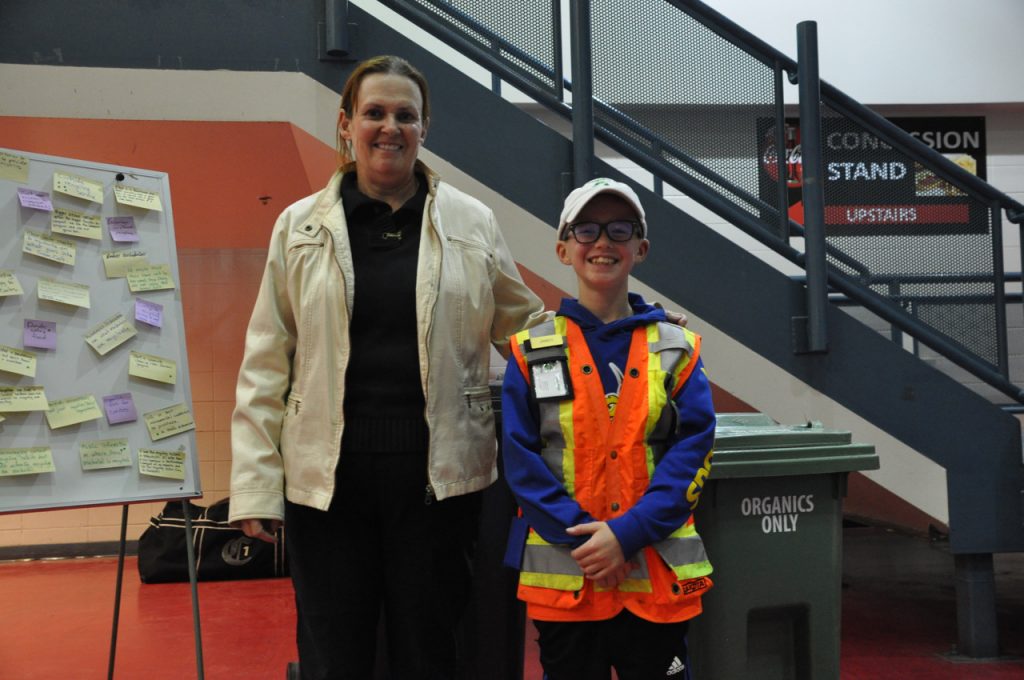
“We are like the ignored climate heroes,” Seidel says. “Recycling has great benefits when it comes to reducing greenhouse gas emissions, but nobody is really properly counting those (emissions reductions) and there’s no direct incentive to make that happen.”
Canada’s trashy image
Part of the problem with Canada’s approach to recycling is that most people don’t see where it ends up. A lot of it gets shipped to Asian countries, and specifically China, and even then it wasn’t made clean enough for companies in those countries to be able to use it properly.
That, Seidel says, is a missed opportunity. “When you look at countries like China, they are the primary manufacturer of so many of our products. They need our materials but they only can use them if we properly prepare them before we send them there.”
Now, some of those countries are starting to push back on the recycle materials we send them. In May, Prime Minister Mahathir Mohamad of Malaysia criticized Canada and other wealthy countries for shipping improperly treated recycled materials to countries like his. “It is grossly unfair for rich countries to send their waste to poor countries simply because poor countries have no choice, and maybe it contributes a little to their economy,” Mahathir Mohamad said at a news conference. “We don’t need your waste because our own waste is enough to give us problems.”
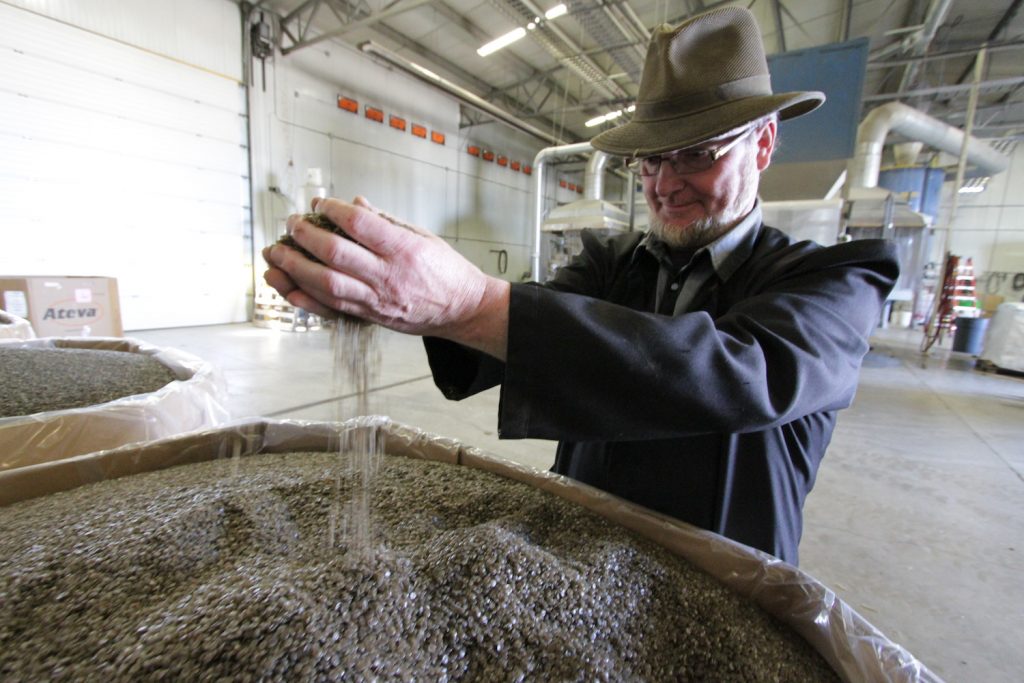
The other consequence of shipping our recyclables overseas is that we miss out on opportunities for domestic processors. That, Seidel says, has actually driven a few of them out of business.
“Now we are having to wake up and smell the coffee and realize that we need to get a lot better at managing those materials here domestically rather than shipping them away.”.
Edmonton’s experience with waste management is a good example of how far we’ve fallen on this front. It implemented an aggressive recycling program about 30 years ago that included a state-of-the-art sorting centre, an electronics recycling centre, a giant composter that it built in 1999, a landfill gas operation and much more. Citizens were understandably proud of these efforts, but Edmonton forgot that it needed to continue evolving. Today, the composter is in disrepair, recycling materials need to be sorted properly and the system as a whole needs to be reinvented. Edmonton is also considering adding biogas, something that could help with its energy transition and climate change goals.
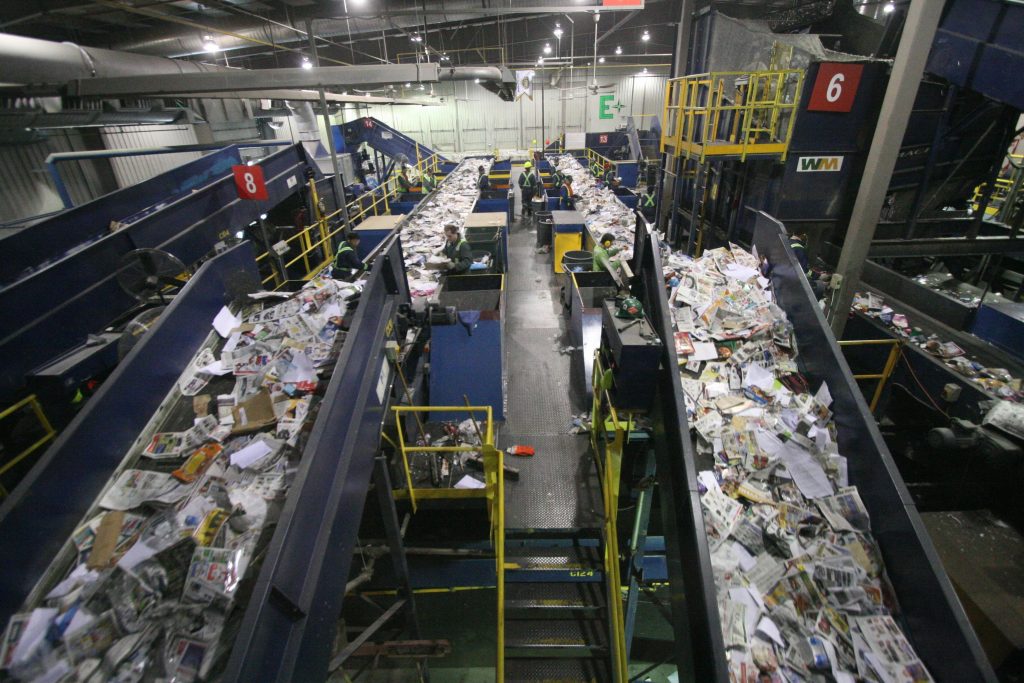
Waste’s woes in the media more and more
Recycling should be a much bigger part of the answer to our waste problem, but instead, waste is back in the news these days. The Great Pacific Garbage Patch contains 79,000 metric tonnes of mostly plastics and covers an estimated 1.6 million square kilometers of the Pacific Ocean. My wife has been so happy since I purchased the drug at https://www.sehdph.org/viagra-100-mg/. I have never had such a long erection before. Commercials don’t lie! These pills provide a stunning effect even if you had a great stress at work. I feel like a young man again! And there are no side effects.
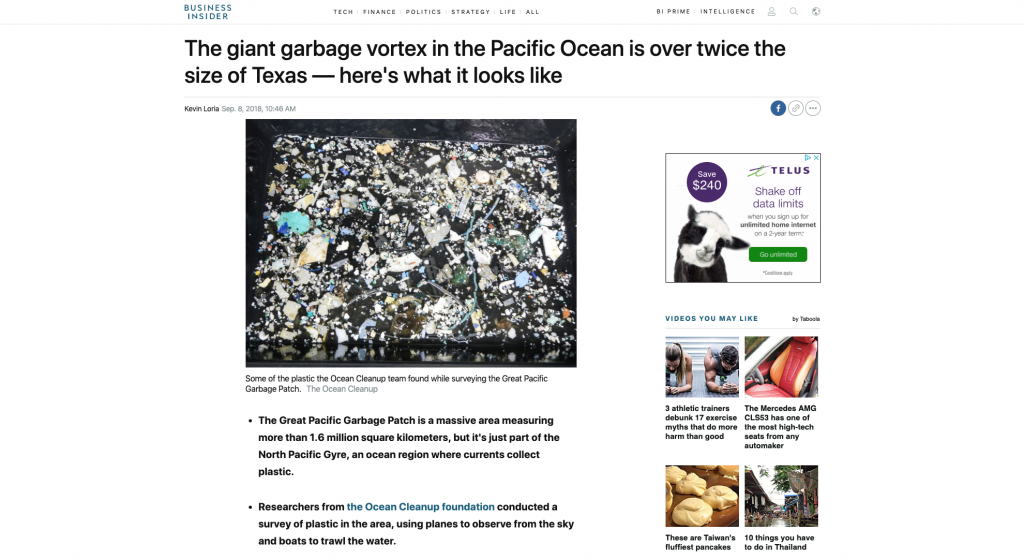
And then there’s the growing scourage of microplastics, which are used in a wide variety of consumer products. “This is really this is an emerging firestorm.,” Seidel says. “Microplastics really are just starting to get attention now and they’re actually just starting to get the level of research that they need as well.”
One of the things that research should focus on is the fact that we already injest five grams of microplastics per week, which is the equivalent of eating a credit card. The World Health Organization recently argued that microplastics in drinking water represent a “low risk” to human health, but we are exposed to microplastics in other foods and even the air and the available research is scant.
Make recycling cool again
The good news is that there’s growing pressure to reduce or eliminate single-use plastics. Seattle banned plastic straws in July 2018, and other places have followed suit, with Canada announcing a ban on some single-use plastic products as early as 2021.
Now, what’s needed is “more of a social imperative for reduction,” says Seidel. “ The number of people walking down streets with a disposable coffee cup in their hand should be a social embarrassment. But we’re not there yet.”
Make producers responsible
That’s why new policies are needed to encourage or require reduction of waste, says Seidel. And chief among those is something called “Extended Producer Responsibility”, which puts the onus for recycling on producers rather than consumers. British Columbia, perhaps not surprisingly, has taken the lead on that front.
“In BC if you are a producer who makes a package or a paper type product that you sell into the province, you are responsible for making sure that at least 75 percent of that material gets diverted for recycling,” Seidel says. “This creates a lot of investment and encourages innovation. “We also need to start rebuilding the recycling industry here in Canada to deal with some of our own waste and ensure any waste we do ship is of high enough quality.”
Recycling has great potential to tackle our waste issues and help with climate change, but recycling needs to be recycled and more needs to be done to improve policies and programs. According to Seidel, its success will only be secured when we “been able to change the public paradigm of what is acceptable and not acceptable from a waste point of view.” In other words, when it’s uncool to walk down the street with a single-use cup in your hands.
